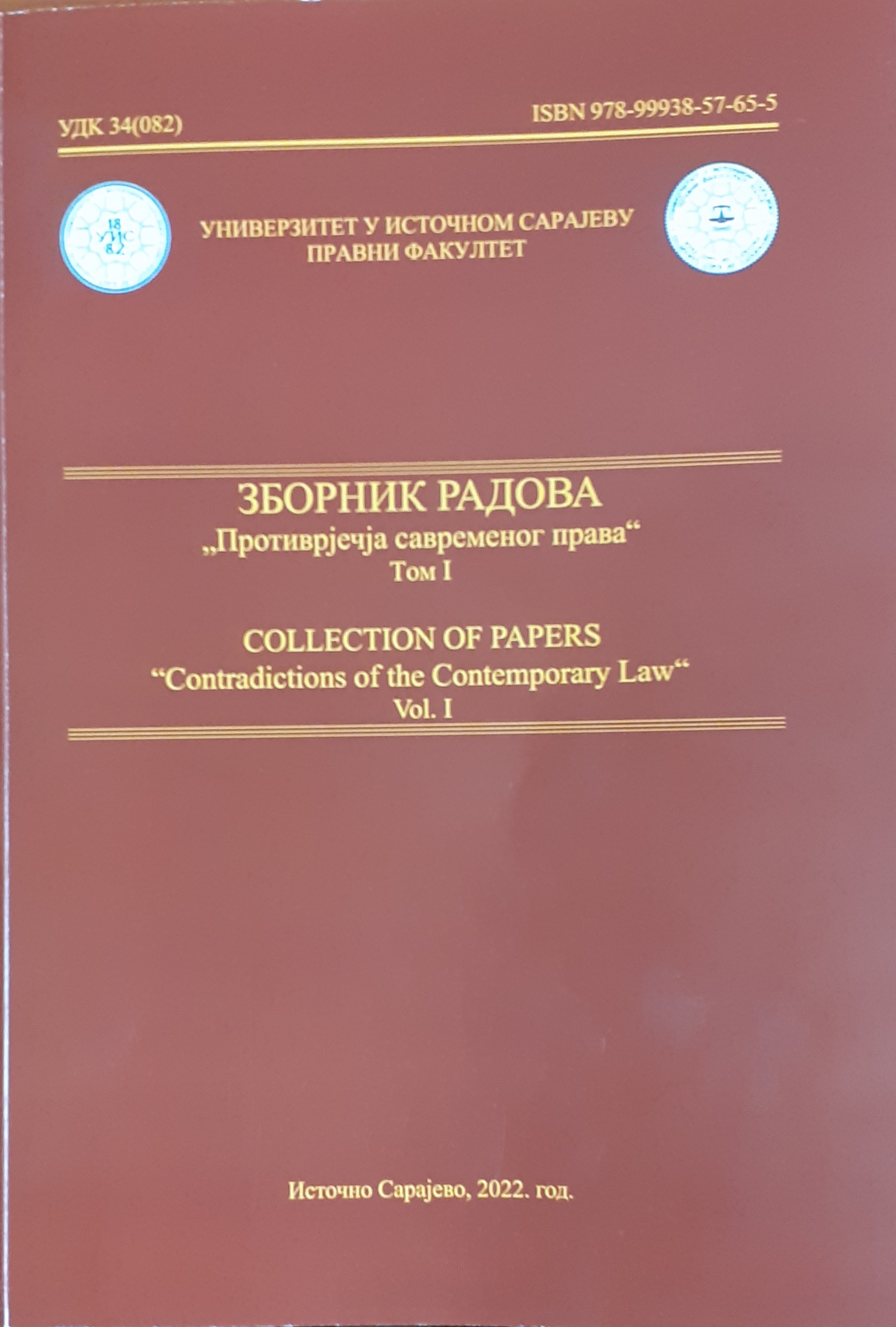Прерогативи националног и европског конституционализма на примеру сукоба Пољске и Европске уније у области владавине права
Prerogatives of National European Constitutionalism on the Example of the Conflict Between Poland and European Union Regarding the Rule of Law
Author(s): Boris Tučić, Radmila Dragišić
Subject(s): Law, Constitution, Jurisprudence, Human Rights and Humanitarian Law, EU-Legislation
Published by: Правни факултет Универзитета у Источном Сарајеву
Keywords: Poland; European Union; Constitutionalism; Rule of law; Supremacy principle; Independence of judiciary;
Summary/Abstract: Since its beginning in 2016 until now, the conflict between Brussels and Poland regarding the state of the rule of law in this member state has developed into one of the most threatening crises of the legal order of the EU, as well as of the fundamental values the Union is based on. Although its strong political dimension cannot be neglected, in its essence, the conflict is of constitutional nature, questioning some basic principles of the EU legal order, primarily the supremacy principle and the principle of uniform and efficient implementation of the Union's law in its member state. EU institutions have been trying to force the Warsaw to fulfill its obligations stemming from the EU membership using different political, financial and judicial instruments, but to no avail. The peak of the conflict was reached when the Polish Constitutional Tribunal interfered in order to "protect" the constitution and the sovereignty of the Polish state. By its decision from the 7th of October 2021, in which some of the crucial articles of the EU Lisbon Treaty were declared unconstitutional and, in the way, illegal and unenforceable in Polish legal system, chances for the resolution of conflict by political means are significantly diminished. The analysis of the Polish laws in the field of the rule of law, especially ones determining independence of its judicial system and the position of judges of regular courts. Supreme court, or even Constitutional tribunal itself, clearly show strong political influence on legal sphere in general as well as deep discrepancies not only with the EU standards and prerogatives, but also prerogatives of other international political and legal authorities, such as the Council of Europe or the OSCE. Under such circumstances, the argumentation most frequently heard, namely, that the organization and functioning of judicial systems are exclusive competence of EU member states and not functioning of judicial systems are exclusive competence of EU member states and not the EU itself, so Polish laws in the field of rule of law must not be questioned by the EU institutions, can not be accepted for several reasons. First of all, Poland or any other state cannot be member of the EU partially, meaning it supports general prerogatives and standards of the EU law only regarding the issues falling under the EU competences, while in other issues of national competence , it is not the case. Secondly, Polish court +s are not only national courts, but "European" courts as well, so one of their main roles is to protect and secure the implementation of the Union law on a daily basis. Keeping this in mind, the legitimacy of the Union's institutions to question the state of the rule of law in Poland or any other member state is indisputable. Furthermore, insisting on the Constitution as the supreme legal act in Poland and "hiding" behind it, cannot be accepted as a rational argument, especially since no single article of the Polish Constitution proclaims or supports legal solutions in the field of rule of law that are currently in force in Poland. On the contrary, The Constitutional Tribunal has been under strong political influences and primarily protects the ruling political agenda. Hypothetically, if it had a chance to formally and objectively review Polish legal solutions in the field of rule of law, most of them would be declared unconstitutional. In light of this, it could be concluded that we are witnessing the manipulation of conflict between national and supranational i.e. European constitutional prerogatives rather than the real constitutional conflict itself. On the other hand, this does not preclude the urgent need to resolve some of the crucial issues of the European integration, including general relationship between the national and "European" law, as well as the nature and scope of some basic principles on which the EU legal order is based. Only in that way the project of European integration and cooperation can be positioned on the right trck again.
Book: Зборник радова "Противрјечја савременог права" Том I
- Page Range: 218-235
- Page Count: 18
- Publication Year: 2022
- Language: Serbian
- Content File-PDF

